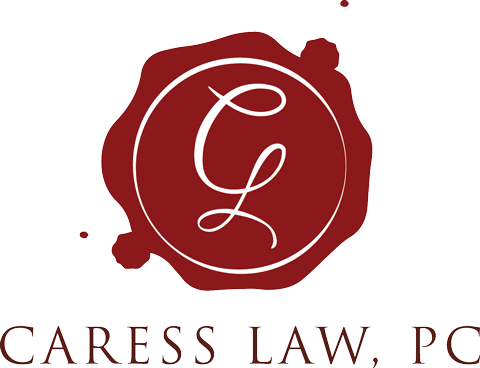DURABLE POWER OF ATTORNEY
Everyone Needs a Power of Attorney Document
From the age of 18, everyone needs a power of attorney (POA) document. A POA is a legal document that allows an individual to name an agent to act on their behalf should they become incapacitated due to accident, illness, or other unexpected situation.
When naming an agent, it’s important to choose someone you trust deeply. This person will make decisions on your behalf, and you need to trust that they will make decisions with your best interests ahead of their own.
There are different types of POAs, which appoint agents to make any of the following types of decisions:
• Financial decisions
• Monetary gifts or donations on your behalf
• Healthcare decisions
• Legal decisions such as recommending a guardian for your children or defending a lawsuit
• Whether to sell or retain property
There are several types of power of attorney documents. Attorney Tammi M. Caress can help you determine which you need to protect yourself and your loved one based on your unique situation.
Frequently Asked Questions About Trusts
What is a power of attorney?
A power of attorney (POA) is a legal document that names an agent to act on your behalf should you become incapacitated or otherwise unable to do so. Your agent can be granted legal permission to make medical, financial, or other legal decisions on your behalf, including making donations or gifting money, consent to give or withhold medical procedures, recommend a guardian for your children, or sell your home, etc. An estate planning attorney can go into greater detail about the full scope of permissions a POA can grant to a chosen agent.
What are the different types of power of attorney?
There are four types of POA: durable power of attorney, general power of attorney, special (or limited) power of attorney, and springing durable power of attorney.
Durable Power of Attorney
A durable power of attorney is the sort most often talked about. It is “durable” because it grants another person the legal right to make decisions in the event of your own incapacitation.
General Power of Attorney
A general POA provides wide-ranging legal powers to the person named by the principal, but loses effect in the event of incapacitation. This is a document you might draft if you wanted to give someone else permission to sell your house or make other legal decisions for you.
Special (or Limited) Power of Attorney
This document grants limited legal powers to another individual, in order for them to make specific decisions on your behalf.
Springing Power of Attorney
This document “springs” into effect when a certain event takes place, for example, incapacitation. This document does not go into effect until triggered by a specific event, unlike a durable power of attorney, which goes into effect the moment the document is signed.
Could my agent steal my money or property?
Investing time and energy into choosing an agent you trust—literally with your life—is important in avoiding abuse of power. There have been plenty of instances of dishonest agents acting in their own best interest, rather than in the best interest of the principal. However, choosing someone who is completely trustworthy can minimize that risk.
Can I appoint more than one agent?
Yes, you can choose more than one agent to act on your behalf. An estate planning attorney can help you define the manner in which your agents may work, for example, whether you would like each of them to be responsible for specific types of decisions, or if you would like them to work together to make decisions for you.
What are the decisions an agent can't make for me?
There are some legal decisions and actions that your appointed agent cannot make for you:
-
- Marriage or divorce
- Voting
- Creating or updating a will
- Creating or revoking a living trust
- Representing you in a court of law
- Filing for bankruptcy
- Applying for or collecting retirement benefits
More Reading About Power of Attorney Documents
What Happens If You Use AI to Craft Your Estate Plan?
Artificial intelligence is a powerful tool that can expand our knowledge; however, one should use caution when it comes to drafting legal documents.
How To Value Personal Property in Your Will
Properly valuing personal property in your will is essential to avoid complications for heirs and executors during the probate process.
[Episode 29] Estate Planning Horror Stories: The Cost of Inaction
In this episode of Navigating Estate Planning with Caress Law, Tammi Caress shares real-life horror stories of clients who neglected to put estate plans in place, leading to devastating consequences for their families.

Download our Estate Planning Primer
Our Estate Planning Primer will introduce you to the various estate planning tools, explain what they do, and help you gain familiarity with the terminology and process.



![[Episode 29] Estate Planning Horror Stories: The Cost of Inaction](https://caresslaw.estate/wp-content/uploads/2024/10/CL-Podcast_Ep_29_v2-400x250.jpg)